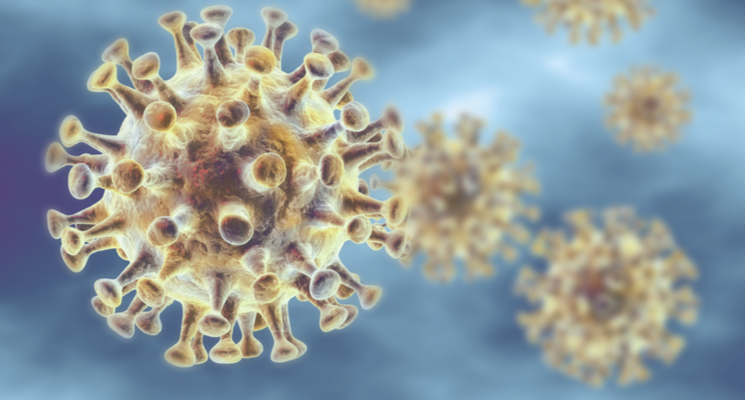In the post-pandemic world, the term ‘virus’ has become a trigger word for the masses, whether in Dubai or anywhere else in the world. Doctors at home and in hospitals work tirelessly to minimize their impact. A relatively lesser-known but equally (if not more) dangerous virus is the MERS Virus. Targeted to and found specifically in the Middle Eastern area, it is one that any doctor on call near you would be able to identify and tell you all about.
A Brief Overview
This enigmatic virus – short for the Middle East Respiratory Syndrome Coronavirus or MERS-CoV, first emerged in 2012. Hailing from Saudi Arabia, it became the subject of intense concern in the region. This is due to its potential to trigger severe respiratory illness in its victims. Given its dangerous and unpredictable nature, it is important to have all the information about its origins, transmission dynamics, clinical manifestations, and ongoing efforts to curtail its spread.
Origins and Discovery
With its origins deeply intertwined with the Arabian Peninsula, the virus earned its moniker, “Middle East Respiratory Syndrome Coronavirus.” It swiftly became apparent that this virus was no ordinary intruder, as it triggered a range of symptoms spanning from mild respiratory discomfort to fatal respiratory failure.
Transmission Dynamics
The MERS virus, akin to its infamous cousin the SARS-CoV-2 virus responsible for the COVID-19 pandemic, thrives on close human-to-human contact. However, MERS-CoV has a slightly more sinister twist. The virus is believed to have originated in bats and subsequently spread to camels, which function as intermediate hosts. When humans come into proximity with these camels or their secretions, they are at risk of contracting the virus.
Moreover, the transmission can also occur within healthcare settings, adding a layer of complexity to its containment. Hospitals can inadvertently become breeding grounds for MERS-CoV transmission. This calls for stringent infection control measures to prevent the virus’s spread within healthcare facilities.
Clinical Manifestations
Once the MERS virus gains entry into the human body, it targets the respiratory system with precision. A seemingly benign cough and fever can rapidly transform into a severe respiratory illness, complete with pneumonia and acute respiratory distress syndrome (ARDS). These symptoms carry a significantly high fatality rate, therefore are particularly concerning. Their severity puts people with weaker or compromised immune systems at heightened risk. Immunocompromised people face the worst of its symptoms, including senior citizens and those who have pre-existing health conditions like autoimmune diseases or dormant cancer.
Unlike its counterpart, the common cold coronavirus, the MERS Virus is not an air-borne disease. It seldom ever spreads and is not easily transmitted. Upon striking, however, its impact can be far more devastating. Respiratory failure can rapidly escalate, necessitating intensive medical intervention such as mechanical ventilation. The prolonged recovery period and potential long-term health complications further underscore the urgency of understanding and containing this novel pathogen.
Global Response and Prevention
In reaction to the virus’s development, worldwide health groups and researchers joined forces to combat it. Lessons from previous coronavirus outbreaks, especially the 2002-2003 SARS epidemic, were critical in designing the response to MERS-CoV.
Governments deployed public health measures such as contact tracing, isolation of cases, and public awareness campaigns were deployed to stop the spread. Heightened surveillance at healthcare facilities and improved infection control practices became cornerstones in minimizing the risk of nosocomial transmission. These concerted efforts have indeed borne fruit, preventing large-scale outbreaks and offering valuable insights into managing future emerging pathogens.
The Road Ahead
As the world grapples with the ongoing COVID-19 pandemic, the MERS virus hovers in the background, a stark reminder of the unpredictability of infectious diseases. While MERS-CoV’s sporadic outbreaks have not reached pandemic proportions, its potential to do so cannot be dismissed. The continued surveillance of its circulation in animal populations, particularly camels, remains paramount in preventing its resurgence.
The field of virology has made remarkable strides in deciphering the intricacies of the MERS virus, yet many questions linger. The quest to uncover its exact origins, the mechanics of its transmission, and the development of effective antiviral treatments continues to drive researchers forward.
Conclusion
On the spectrum of infectious diseases, the MERS virus is one that gives proof of the ever-present threat posed by pathogens. Its presence reminds one that viruses, regardless of their size, shape, or origin, have the potential to disrupt lives and challenge humans’ understanding of medicine and science. As humanity navigates the dynamic landscape of global health, its commitment to vigilance, scientific inquiry, and collaboration remains the most potent weapon against these silent adversaries.
Staying informed and prepared is key to protecting yourself and your family from infectious diseases in Dubai. In case you experience symptoms, you should know how to call a doctor at home in Dubai for timely medical support. It’s also helpful to understand available instant healthcare solutions with accessible doctors in Dubai and follow preventive measures such as how to avoid getting a cold during winter in Dubai to strengthen your overall health and immunity.
If you feel even the slightest onset of the symptoms, you should consult your doctor. No need to go out and visit one. Simply visit the ServiceMarket website, and book a doctor on call in Dubai to get examined in the comfort of your own home.







